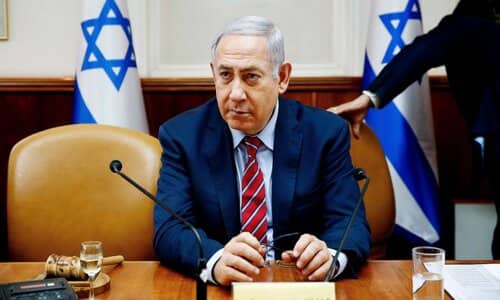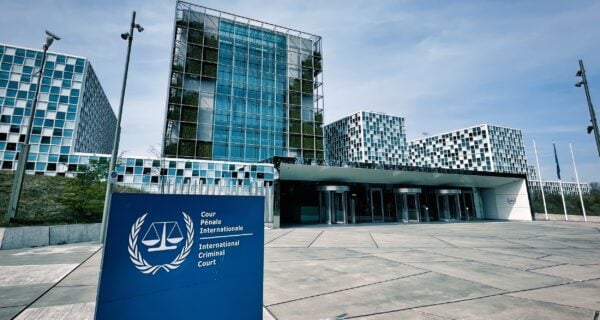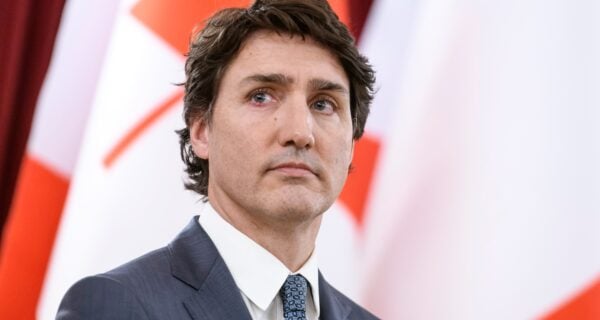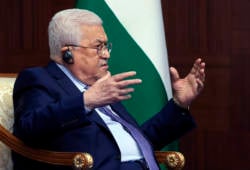Israel at War Day 420: IDF Destroys Mile-Long Hezbollah Missile Factory On Syrian Border Ahead Of Ceasefire
Will Israel’s Northern Residents Be a Casualty of The Israel-Hezbollah Ceasefire?
Joe Biden’s international track record has been disastrous, particularly in the Middle East. His ill-conceived withdrawal of American troops from Afghanistan in 2021 set the stage for what has been one blunder after another. Under this administration, Iran has felt empowered to push forward their nuclear program while bulking up the strength of their proxy militias.
As fresh truce holds, IDF says over 12,500 Hezbollah targets hit in 14 months of war
Military publishes data after fragile Lebanon ceasefire takes effect; some 25,000 weapons seized, 2,500-3,500 Hezbollah operatives killed; IDF also says it killed 14 top terrorists.
Hours before ceasefire Israel destroyed Hezbollah's 'largest precision-guided missiles manufacturing site' as group vows to 'fight'
Israel’s military says it destroyed Hezbollah’s "largest precision-guided missiles manufacturing site" as a lawmaker is vowing that the terrorist group will "fight and resist" any attacks on Lebanon.
Iran to begin enriching uranium with thousands of advanced centrifuges, UN watchdog says
Iran will begin enriching uranium with thousands of advanced centrifuges at its two main nuclear facilities at Fordo and Natanz, the United Nations’ nuclear watchdog said Friday, further raising tensions over Tehran’s program as it enriches at near weapons-grade levels.
Ceasefire Negotiator: Iran Will ‘Try’ to Re-Arm Hezbollah, But We’ll ‘Try’ to Ensure That’s ‘At Least Diminished’
On Wednesday’s “PBS NewsHour,” U.S. Special Envoy Amos Hochstein, who was the lead negotiator in the Lebanon ceasefire negotiations, stated that Iran will try to re-arm Hezbollah in the wake of the ceasefire deal, but Iran has been weakened and “we’re going to try to make sure that the re-arming, which happens from Iran through Syria, is at least diminished, slowed down, if not eliminated.”
PM threatens ‘intensive war’ if truce breached, as restrictions end in much of Israel
In his first interview since the start of the ceasefire in Lebanon, Prime Minister Benjamin Netanyahu said Thursday that if Hezbollah were to violate the agreement, there would be “intensive war.”
IDF reveals military achievements of Operation Northern Arrows after Lebanon ceasefire
Extensive air, naval, and ground campaigns dismantled Hezbollah’s capabilities over 14 months of fighting.
Israel warns Syria of ‘direct price’ to pay if it helps Hezbollah rearm
IDF spokesman says military ‘will act’ against all weapon deliveries to Lebanese terror group, including in Syria; Netanyahu says Assad ‘playing with fire.’
Hamas terrorist opens fire at Israeli civilian bus in West Bank; 8 wounded, 3 seriously
Palestinian gunman, who used M-16 assault rifle, shot dead by troops; Al-Qassam Brigades names him as Samir Muhammad Ahmad Hussein, 46; IDF rules out possibility of second gunman.
Saudi Arabia abandons pursuit of US defense treaty over Israel stalemate
Saudi Arabia has abandoned its pursuit of an ambitious defense treaty with Washington in return for normalizing relations with Israel and is now pushing for a more modest military cooperation agreement, two Saudi and four Western officials told Reuters.
Putin orders MASSES of new Oreshnik missiles as he plunges Ukraine into darkness in blitz & directly threatens Zelensky
Russia's tyrant gleefully boasted about his new hypersonic war toy in his latest rambling speech as he vowed to crush his enemies and directly threatened Volodymyr Zelensky.
























